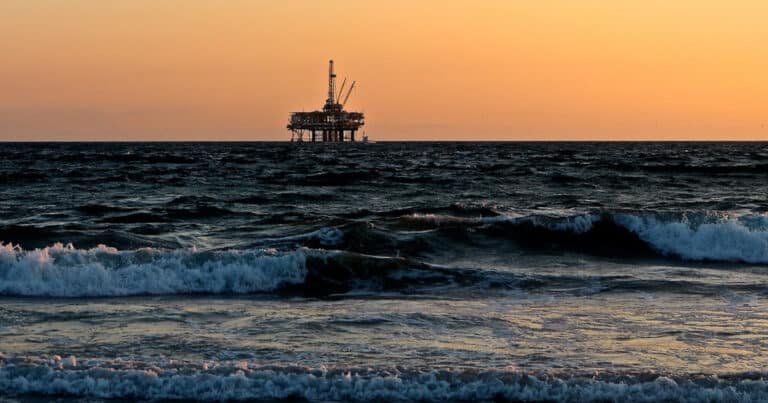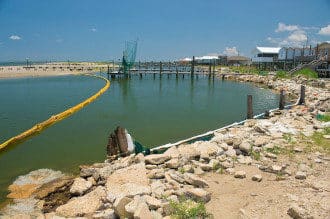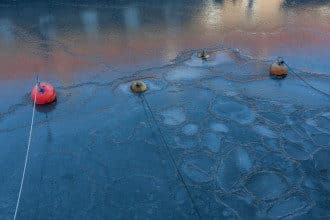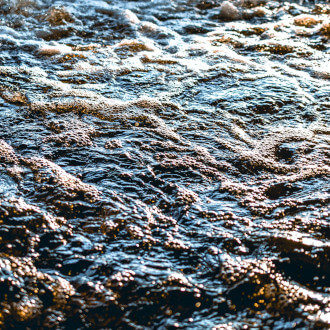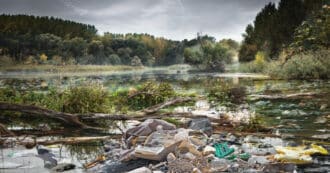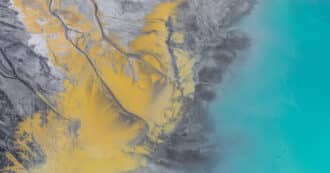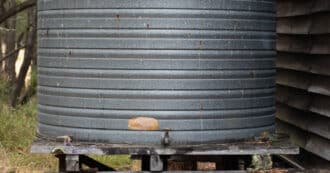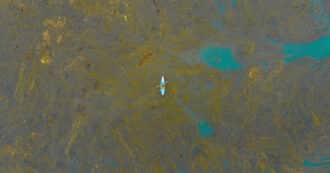By Sydney Cohen – Just this month, October 4th 2021, stunning beach locations in California were again destroyed by a huge oil spill. Look at the scope of the oil spill clean up going on right now while you read our blog: https://www.youtube.com/watch?v=RqKrUcXoNQQ
The Deepwater Horizon oil spill was the largest accidental marine oil spill in history, and it took months for workers to clean up. The disaster resulted from an explosion on April 20th, 2010 that killed eleven people and released four million barrels of crude oil into the Gulf of Mexico. The effects were felt as far as Florida, Washington State, and West Virginia.
There are many environmental disasters that happen, but one of the most devastating is an oil spill. It doesn’t only harm wildlife and marine life; it also has adverse effects on humans like respiratory problems. When faced with this type of problem, you need to act quickly in order to save what you can. This blog post will cover how to handle a large-scale cleanup of an ocean or river with spilled oil using natural materials you can find right at home!
Oil Spills
Oil spills are one of the most devastating environmental disasters to happen. They can devastate our coastlines, kill marine life and cause oil slicks in the water that contaminate beaches, marshes, and wetlands for years. The oil gets into food chains where it is ingested by fish or other animals. It contaminates drinking water sources when oil seeps underground. And oil also has a big impact on tourism; beachgoers don’t want to go near an oil slick! But there’s good news: clean-up efforts have been successful in many cases.
The Consequences of Oil Spills
Oil spilled in the ocean or oil wells that result from a spill are highly dangerous because the waves are resisting very high elasticity. When not dealt with quickly this menace can quickly reach the shoreline and other areas adding to the consequences of the catastrophe.
How long it takes for an ecosystem to recover from a spill is dependent on its size. The effect of a small oil spill takes 10 years to fully disappear though a larger spill could take more time. Oil spills can result in the collapse of a range of species. including fish, which will later die in an ecosystem collapse with the occurrence of long-lasting water contamination.
Many wildlife species can potentially be compromised by the dispersion of contaminated water and water-containing nutrients. Filter feeders, including coral and crustaceans, skimmers such as birds and other surface feeders, and mollusks are typically the first to be affected.
There is also a social impact that results from oil spills, aside from the damage to the environment that they cause. Fishing communities in the region of an oil spill can no longer fish because the fish caught contain high levels of arsenic and chemicals from the water pollution. This affects the industry of many shoreline and coastal populations.
Oil Spills in The Gulf of Mexico
All gulf coast residents know that the Gulf of Mexico is an important part of their lives. It provides them with recreation and work opportunities, as well as a place to live. Unfortunately, it has been under attack for years now by pollution from the oil spills resulting from the fracking industry.
The gulf coast is home to many people who rely on fishing and tourism industries for their livelihoods, and these industries have suffered greatly because of oil spills in the gulf.
The Deepwater Horizon oil spill occurred on April 20, 2010, in the Gulf of Mexico. It was “considered to be the largest marine oil spill in the history of the petroleum industry,” and the oil well was still considered leaking in 2012.
There was a massive clean-up effort, using oil dispersants, controlled burns, floating booms, and skimmer ships in an effort to protect the nearby beaches, estuaries, and wetlands. The spill was considered one of the biggest environmental disasters in history.
Oil Spill Clean Up
Oil spills are not pretty. They can cause serious environmental damage, and they also bring down the property value of homes in the area. This is why the clean-up is so important! When an oil spill occurs, it needs to be cleaned up as quickly as possible before it causes any more harm.
If you find yourself in this situation, here are some steps that you should take:
- Contact clean-up professionals immediately
- Hire clean-up crews with equipment for removing all traces of oil
- Do not use water or other liquids on-site while cleaning
- Minimize contact with the spilled material
An oil spill response team is a specialized group of people that clean up oil spills or any mess created by an oil spill. They are usually contracted when the clean-up efforts fall outside the scope of traditional response organizations or if cleanup technologies are not available in a timely manner.
Methods For Oil Spill Clean-Ups
Oil spills are usually a very difficult task to clean up, but methods have been developed over the years to help. The methods range from simple methods that do not require any special equipment or knowledge of chemistry, to methods that involve hazardous materials and should only be undertaken by professionals.
Responding to Oil Spills on Shore
In the wake of the EXXON Valdez spill, in 1989, responders were handed shovels and pipes to use. Throughout that time many more techniques were developed that are now used routinely in coastal cleaning. NOAA‘s team reviewed and recommended trade-offs in assessing the use of spill intervention tools and technologies.
In March 1989, NOAA Scientists raced to remote Prince William Sound Alaska in March 1989 to respond to the massive oil spill in Prince William Sound, Alaskan Sound, one of the worse oil spills in United States history.
Use of Skimmers in Clean Ups
Oil booms, skimmers, or oil scoops are commonly applied to boats to help remove contaminants from surface waters. Skimmers are specially designed machines that squeeze out oil like vacuum cleaners. They are used to physically isolate oil from the surface water and to collect and process for re-use. Oil can be confined utilizing the boom if it has an oil boom or a pump-out oil.
Using Oil Booms in Clean Ups
The use of oil booms is a simple and successful way to control spills. Equipment called containment booms act like fences to stop oil from spreading. Booms have multiple parts: the ‘free-board’ is the part above the surface and is intended to help contain oil or to prevent it from flowing over the top. A ‘skirt’ is attached beneath the surface to prevent the oil in the booms from getting caught under the boom and escaping.
Chemical Stabilization of Oil by Elastomizers
Experts have formulated chemicals like ‘elastol’ to prevent oil spills and to contain leakage. The compound gelatinizes or solidifies the oil at the surface of the water and prevents it from spreading or escaping.
Furthermore, the gelatin is easy to obtain and thus makes the procedure highly efficient. The oil removal step is simple to use and quick to recover from the spill site so that it is highly efficient and helps prevent spreading contamination in adjacent areas.
Most oil spills take place at the edges of the sea. Most people leave them to naturally decompose in the environment. As they get closer to shore we slowly begin treating them.
Religion and Oil Spills
There is a wonderful collection of resources on faith organizations responding to the BP oil spill on the site ReligionLink. Here are a few examples and quotes:
“The BP Oil Spill: A Christian Call for Lament and Reconciliation” is an online petition which “called on Americans to observe a ‘fast from oil’ on Sunday, June 20, 2010, the two-month anniversary of the spill.”
In “Buddhist Ethics for a Harm-Free Livelihood: An Open Letter to the CEO of BP,” Josh Schrei writes about how “In the Buddhist worldview of my upbringing, the livelihood of a human being must be based on one basic criterion — do no harm. The more complex the economy of our world becomes — and the more fragile its environment — the more vital it is for individuals to personally adopt this ethical outlook and this way of living.” The author calls upon BP to adopt the Buddhist “do no harm,” approach and shift away from their harmful practices that culminated in a massive oil spill.
Lastly, Rev. Fletcher Harper in his article, “Silence, God, and the Gulf Coast Oil Spill,” calls upon us to develop “strong federal policies to create renewable energy and fight climate change, and to regulate and replace the toxins we’re spewing into the earth” based on various faith traditions.
God is calling us to protect the planet and ourselves from oil spills. Will we heed the call?
* Featured image source

